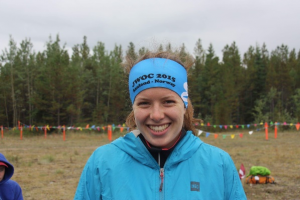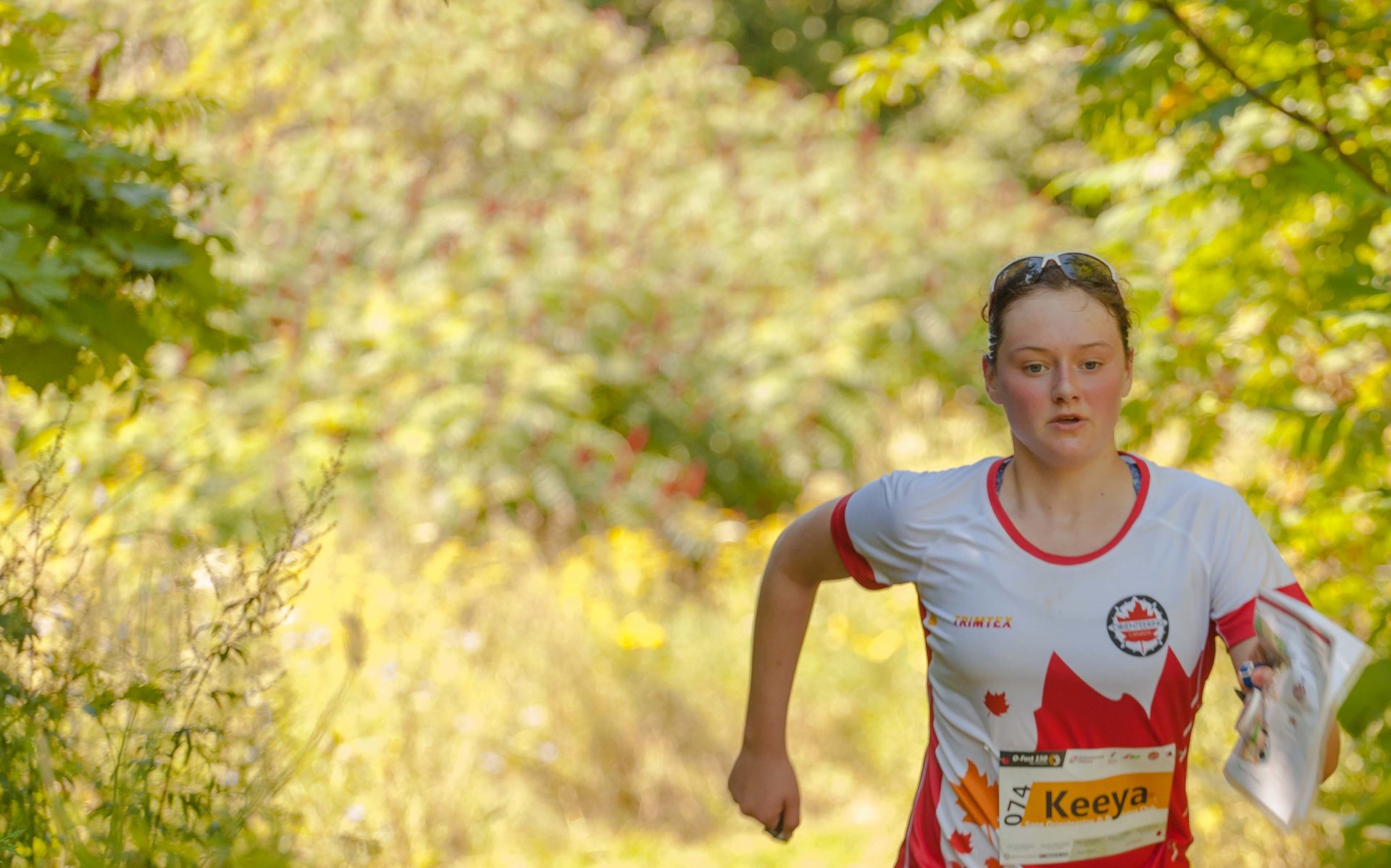
Rachel is a 20-year-old athlete from a strong O family in Salmon Arm, BC, and has been orienteering with the Sage O Club for most of her life. She was both BC Champion and Canadian Champion in her age-class in 2018, and has represented Canada internationally at the Junior World Orienteering Championships in both Hungary (2018) and Denmark (2019). As well as competing, she has been a Co-Event Director for the very successful Okanagan Adventure Running Tournament for the last two years. We asked her a few questions…
DW: Where, when and how did you first get started in orienteering?
RM: I was first exposed to orienteering as a baby when I was carried around by my parents as they orienteered. Once I was older, I started to run the course, with them shadowing me. Eventually, I was able to orienteer on my own. I became more serious and focused on orienteering around 2017 and focused on orienteering-specific training and improving my navigational skills.
DW: Which orienteering discipline do you currently prefer, and why?
RM: I currently prefer middle distance races because of its technical focus. I like that it focuses more on the orienteering skills and has less of a running component as compared to a long or a sprint.
DW: Do you have a favourite pre-race beverage?
RM: I don’t really have a favourite pre-race beverage, but if I had to pick, I would probably just say water.
DW: What would you consider your greatest strength, and your biggest weakness, as an orienteer?
RM: My biggest strength as an orienteer is my experience orienteering in a variety of different terrains. My biggest weakness is my ability to catch mistakes early on often resulting in larger mistakes that could have been minimized with earlier correction.
DW: Which position do you prefer in a relay?
RM: I haven’t had a lot of opportunities to run in relays, so I prefer to run second or third as I haven’t had a lot of opportunities to practice the head-to-head skills needed for the first leg.
DW: Who has been most influential for improving your competition skills?
RM: My dad has been the most influential for improving my competition skills by introducing me to orienteering as well as encouraging my participation in the sport.
DW: How do you stay fit for orienteering?
RM: I run, mountain bike and orienteer during the summer and cross-country ski, run and do strength training during the winter. I like having a variety of activities to help keep training interesting and new.
DW: What was your most memorable mistake in an O race?
RM: As a youngster, I was running course 1 at Brandywine. I couldn’t find the second control so was wandering around in the woods. Eventually I found a control about halfway through the course and ran around the course backwards from there to find the second control! From there, I finished the course normally.
DW: How many parts of the world have you orienteered in, and what is your favourite O map or terrain?
RM: I have orienteered in 9 different countries. Some of my favourite terrain was the open and mossy forests in Denmark in the Aarhus area.
DW: How do you organize your competition maps – by year? -by area?
RM: In chronological order.
DW: If cost were no barrier, where would you most like to go orienteering next?
RM: I would like to go orienteering in Spain or Portugal. The terrain looks interesting and it would also be a good place to orienteer in the spring while there is still snow here.
DW: In what part of the sport do you most like to volunteer?
RM: I like to help with the organization of events: planning venues and with course planning. I really enjoyed co-organizing the Okanagan Adventure Running Tournament in 2018 and 2019 and making sure the whole event came together smoothly.
DW: If you had the power, what aspect of our sport would you change?
RM: I would change our sport so that it was possible to run in the same terrain many times without the terrain losing its enjoyability for orienteering. In order to make an area usable for many trainings, some sort of new technology could be invented that would allow changing the map to create physical changes in the terrain reflecting the map updates. That way you would be able to customize an area to your trainings and have new terrain every time you went orienteering. Of course, this is unlikely to ever happen as we do not have any such technology nor is money likely to be invested into creating something like this. Something like this could make orienteering much more accessible, as you wouldn’t have to travel long distances to compete or train in new terrain.
 Orienteering BC
Orienteering BC